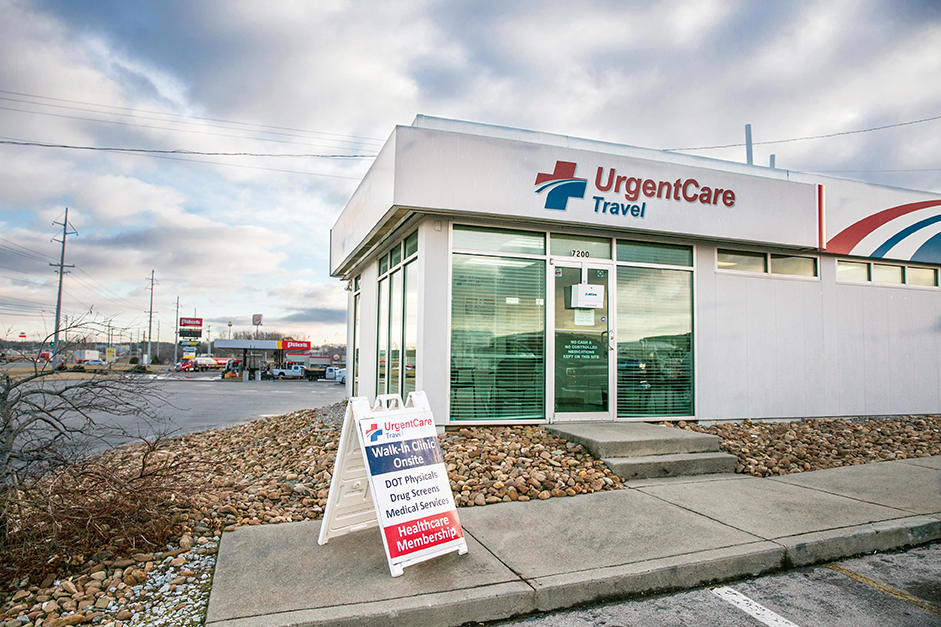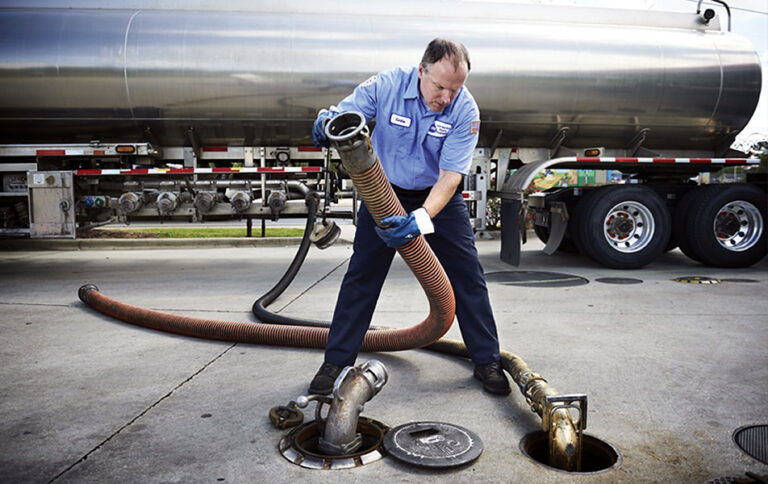Top 10 lists abound in the U.S. — sports teams, movies, world leaders, music — you name it, there’s probably a list for it.
For the most part, being included in a top 10 list is an honor, but that is not the case when the Bureau of Labor Statistics ranks the 10 most dangerous jobs in America.
Among them: truck driving at No. 6.
The primary danger in driving a truck is having a traffic accident, but personal safety in terms of being placed at risk for becoming a victim is a danger, too, along with lack of access to medical services.
Among the reasons for potentially becoming a victim are pick-up and delivery locations in some of the worst parts of the U.S., as well as a nationwide shortage of safe parking.
“We have security measures in place at our terminals and headquarters, and we train drivers on how to remain safe and secure while on the job,” said Dupré Logistics Vice President of Safety and Risk Management
Al LaCombe. The Lafayette, Louisiana, carrier employs about 950 drivers and primarily operates south of Interstate 40 from Texas to the Carolinas.
Dupré Logistics does not ignore the dangers its drivers face while on the road, at a terminal, or delivering a product.
“We haven’t had a driver physically assaulted in many years,” said LaCombe, “but we provide guidelines and training to help drivers avoid becoming victims.”
Avoidance, as opposed to confrontation, is Dupré’s recommended method of keeping its drivers safe.
“We don’t have many instances where a criminal is intent on stealing a truck full of fuel,” he added. “But there are occasions when drivers are caught off guard from behind by someone demanding their wallets.”
Dupré instructs drivers to lock their trucks’ cabs while filling customers’ underground fuel storage tanks. Likewise, drivers know to keep their backs to their vehicles and their eyes on their surroundings.
“We also have our drivers set orange cones out when making a delivery,” he said. “The cones are a signal to other people in the area this is the driver’s work zone. If someone attempts to step inside the cones, the driver immediately asks them to stop and tells them that for the safety and security of both driver and passerby, the area inside the cones is off-limits.”

Health issues, lack of exercise, and a penchant for fast foods can easily lead to sometimes-severe medical issues. Even though accessing quality health care on the road can be a challenge, there are still some options for drivers, such as clinics located within truck stops.
“It’s a win-win situation for drivers and fleets,” said Pilot-Flying J (PFJ) Travel Centers Senior Vice President of Marketing Mitch Strobin, referring to the Truckers Health Team program. The Truckers’ Health Team at PFJ is a health care management team focused on helping its members manage chronic health conditions, Strobin said.
“Happy, healthy truck drivers are more productive, can travel more miles, have longer careers, and make more money than unhealthy drivers,” he said. “Likewise, from the fleet or carrier perspective, all of those characteristics of happy and healthy drivers impact the bottom line and protect a company’s return on investment.” The added benefit is that happy, healthy drivers are less of a risk to others sharing the highways, he noted.
A focus on drivers is a necessary component to health and safety on the road. LaCombe noted that Dupré’s company culture keeps its focus on its employees and their families.
“Our drivers are typically home every night,” he said, adding that this cuts down on many issues larger over-the-road carriers face. “But for drivers who do become ill or injured on the road, our operations divisions have set up relationships with health care providers in the areas we work.”
Sometimes the providers are part of a health care “chain” or individual provider in a specific city. “We look for consistency in treatment,” shared LaCombe, noting that treatment includes Department of Transportation (DOT) exams and drug testing.
“It’s important that we know when we send a driver to a specific provider that the clinic will offer the same standard of care and maintain a level of consistency when making determinations during DOT exams or interpreting results of tests,” added LaCombe.
Strobin said PFJ locations are strategically selected based on a grid following the interstate highway system, and PFJ’s health care team is always within reach through its “telehealth” system.
The majority of PFJ services relate to DOT health exams and drug screenings. Strobin said that, based on the experience of PFJ’s health care staff, nearly one-half of truck drivers suffer from a chronic health condition severe enough to prevent them from being issued long-term medical cards.
“We’ve found that 48% of truckers we see hold a medical card certifying them for less than 12 months,” he noted.
The trucking lifestyle and the difficulty drivers have finding healthy foods and maintaining an exercise regimen often leads to obesity. And many of America’s health crises, ranging from diabetes to heart disease, stem from obesity.
“Our program doesn’t address the needs of an OTR driver with the common cold or a bout of the flu,” said Strobin. “Rather, we encourage drivers to manage their health the same way they do their equipment. Trucks require routine maintenance and occasional major maintenance.”
TravelCenters of America (TA) Spokesperson Tina Arundel said its network of health clinics meets most drivers’ needs, with a focus on drivers’ overall health, from staying fit to treating acute illnesses.
“We’re committed to providing as many services as possible to all highway travelers,” she said. “We help professional drivers feel their best, on and off the road, and we’re happy to provide health care services at a number of our locations.”
Arundel said health services at TA’s clinics are offered by third-party medical providers and can include chiropractic services and DOT physicals, in addition to other services. Most of the providers accept walk-ins, same-day appointments, or scheduled appointments when possible.
“TA recognizes that it can be a challenge to be healthy and stay fit while on the road, and we want to offer drivers a place to work out and unwind,” said Arundel. Many TA locations offer free exercise rooms, outdoor fitness stations, and activity centers.
When speaking of safety related to the trucking industry, the issue is more than a matter of obeying speed limits, following federal regulations, and being alert behind the wheel. For drivers, safety and health come as a package. What is unsafe typically has the potential to be unhealthy (or worse). What is unhealthy can quickly create dangerous behaviors and situations along the road.
As Strobin shared, happy, healthy drivers make happy, healthy carriers.
Since retiring from a career as an outdoor recreation professional from the State of Arkansas, Kris Rutherford has worked as a freelance writer and, with his wife, owns and publishes a small Northeast Texas newspaper, The Roxton Progress. Kris has worked as a ghostwriter and editor and has authored seven books of his own. He became interested in the trucking industry as a child in the 1970s when his family traveled the interstates twice a year between their home in Maine and their native Texas. He has been a classic country music enthusiast since the age of nine when he developed a special interest in trucking songs.











